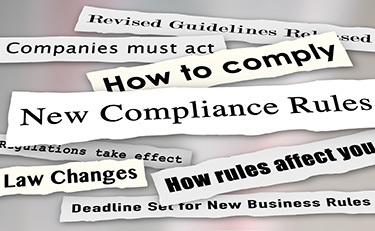The DOL’s New Rule to Simplify Federal Retail and Service Overtime Exemption Status

The U.S. Department of Labor issued a new final rule (RIN 1235-AA32) that is effective immediately today. The new rule withdraws two regulatory provisions regarding overtime exemptions for commissioned employees in the retail and service industries under the federal Fair Labor Standards Act. The first provision withdrawn by the DOL was a list of industries it viewed as having no “retail concept,” making them ineligible to claim the overtime exemption. The second provision withdrawn listed industries that “may be recognized as retail” and were potentially eligible for the overtime exemption. The DOL’s goal in withdrawing the two provisions, per its press release, was to “reduce confusion” and “provide greater simplicity and flexibility” to retail and service industry employers. All businesses will now be treated equally under the same standards to determine whether they qualify as a retail or service establishment eligible to apply the overtime exemption.
In order for an employee to come within this FLSA overtime exemption, the employee must:
- Be employed by a retail or service establishment, which is defined in the FLSA as an establishment where 75% of its annual sales of goods and/or services is not for resale and is recognized as retail sales or services in the particular industry;
- Earn at least 1.5 times the FLSA’s current minimum wage; and
- Have commissions make up more than half of his/her compensation.
In California, however, the impact of the DOL’s new rule is minimal. Under the Wage Orders for the “Professional, Technical, Clerical, Mechanical and Similar Occupations” (Wage Order 4) and “Mercantile” industry (Wage Order 7), there are strict requirements for the “inside salesperson” overtime exemption to apply. The employee must:
- Be an employee covered by either Wage Order 4-2001 or Wage Order 7-2001;
- Earn at least 1.5 times California’s current minimum wage; and
- Have commissions make up more than half of his/her earnings.
Regardless, the effect of the new DOL rule makes more employers operating exclusively under the FLSA eligible to assert an exemption to overtime. The DOL’s elimination of the no “retail concept” and “may be recognized as retail” lists opens the possibility for more businesses to apply the exemption test and to apply it later in their development as their business changes.
This publication is published by the law firm of Ervin Cohen & Jessup LLP. The publication is intended to present an overview of current legal trends; no article should be construed as representing advice on specific, individual legal matters, but rather as general commentary on the subject discussed. Your questions and comments are always welcome. Articles may be reprinted with permission. Copyright 2020. All rights reserved. ECJ is a registered service mark of Ervin Cohen & Jessup LLP. For information concerning this or other publications of the firm, or to advise us of an address change, please send your request to info@ecjlaw.com.
